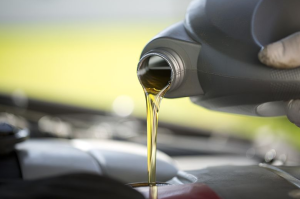When you decide to buy car engine oil, it’s because you want the best performance for the vehicle. But not every oil that is available can fit your specific type of engine. So the question is, how will you choose amongst the available options.
Different manufacturers give the oil unique properties from their chosen method of production. But, other factors also make the end results of manufacturing process vary from one oil to another. For example, the raw materials used for the oil’s production. Further Manufacturing determines how well the oil plays its role as a cooling system component, lubrication, protection and engine block clean-up .
This can make the process of choosing the best type of car engine oil quite frustrating. But in order to simplify the process of choosing, look at your car’s manual to know what the manufacturer recommends. The owners manual will recommend things like;
- Oil weight which also refers to the oil’s viscosity or it’s thickness.
- The type of oil to use during different climatic conditions and seasons.
- The type of oil that fits the car depending on it’s purpose of creation meaning how you use the car.
As you assess the oil container, check whether it fits diesel or gasoline engines. The container usually has the markings CK-4 meaning it’s for diesel engines. Additionally, the oil container markings of SP means it’s for gasoline engines.
Further you will spot a couple of markings on the oil container that specify the oil’s purpose. For example, high tech engines, new cars, higher mileage cars, off roads and heavy duty cars.
Major differences found amongst oils.
- The level of viscosity for each oil.
- Laboratory tests done for each type of car engine oil.
- Engine tests that are done for every car engine to determine which type of oil it requires.
- The oil’s capacity to protect the engine from wear and tear.
- Further, its capacity to offer lubrication at all times.
- The oil’s reaction to different temperatures.
- The oil’s oxidation properties that help it to handle sludge accumulation.

Full Synthetic oil.
This oil usually works best on engines that are high performance. This oil is highly recommended if you’re buying a car with engine performance modifications. This increases its requirements for better protection. Additionally, this oil can be used for heavy duty usage like towing truck engines and heavy duty vehicles.
These oils can be trusted to deliver superior quality because they undergo stringent special tests in critical areas like oxidation. This makes the oil superior and long lasting. Another advantage is that these oils have a viscosity index that makes them flow during low temperatures at the same rate as during hot temperatures.
Further, full synthetic oil protects against particle accumulation hence making their oxidation properties very superior. These types of engine oils are very essential but they don’t perform well for all types of engines. Additionally, the oils are very expensive.
Synthetic blend oil.
They share characteristics of two types of oils. That is the mineral oil and the full synthetic oil. This gives the oil a performance to pricing ratio balance. Their development is through a chemical process that includes the mixture of mineral oil and full synthetic oil. They are commonly used because many manufacturer engines can work with them. Further, the synthetic oil blend does not affect the number of oil changes.
Mineral oil.
Their utilization does not include the high performance engines with turbochargers. The mineral oil fits other engines of older car models. Further, mineral oil is obtained from the refining of petroleum. Based on this, It’s fair to say that the oil gets its characteristics from this process.
Firstly, it is usually thicker than the others. Which makes it very inefficient during the extreme weather conditions. Further, this thickness is what makes it very inefficient for high performance engines.
Secondly, its oxidation properties are lower than the others. Hence the reason why it requires regular oil changes. This takes care of the engine and it helps to avoid oil leakage. Further, lowered oxidation properties make it very ineffective in terms of cleaning the engine. Because it accumulates a lot of sludge.